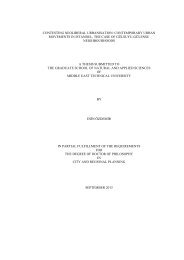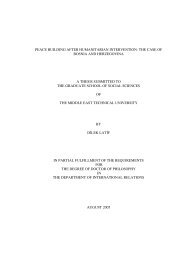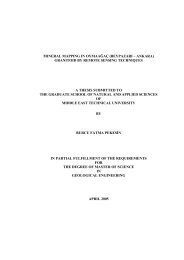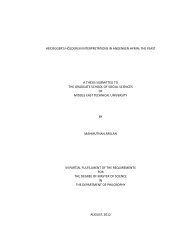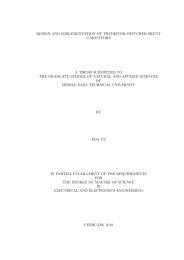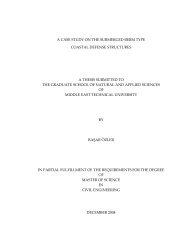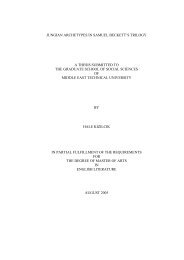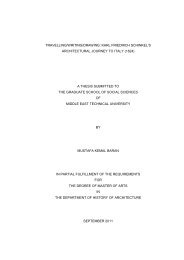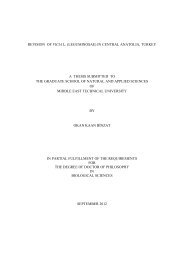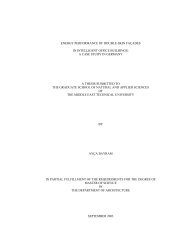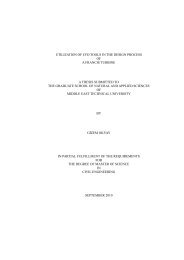View Original - Middle East Technical University
View Original - Middle East Technical University
View Original - Middle East Technical University
You also want an ePaper? Increase the reach of your titles
YUMPU automatically turns print PDFs into web optimized ePapers that Google loves.
that realist ontology has decisive consequences for theory –first, ‘the necessity of<br />
operating with different types and modalities of causality which we analytically<br />
identify at different levels of abstraction and planes of analysis’(ibid.), and second,<br />
‘explanation is only adequate relative to a given explanandum’(Jessop 2004:44).<br />
Ontological/historical contingency, on the other hand, undersells any understanding of<br />
‘necessity’ as nomothetic causality; internal relations of social forms anticipate that all<br />
is not random(Bertramsen 1991:106-7). Furthermore, necessity ‘need not, does not<br />
and cannot mean that whatever happens in the real world is the result of a single<br />
causal mechanism’(Jessop 2004:98)<br />
4.2 Jessop on Regulation Theory<br />
While first-generation work was likely to cite the fundamental contradictions<br />
and conflicts generated by capitalism’s distinctive dynamic, later generations<br />
were more inclined to refer to middle-range analyses of the self-undermining<br />
nature of particular accumulation regimes and modes of regulation defined in<br />
more institutional terms. This prompted an interest in moving beyond the<br />
generic crisis tendencies of capitalism to identify their specific forms in<br />
different periods and/or varieties of capitalism and to examine the major<br />
ruptures and structural shifts that occur as accumulation and its regulation<br />
develop in and through class struggle and other types of social conflict. Given<br />
these concerns, the RA focuses on the changing combinations of economic and<br />
extra-economic institutions and practices that help to secure, if only<br />
temporarily and always in specific economic spaces, a certain stability and<br />
predictability in accumulation(Jessop 2006:14).<br />
Jessop, since the 1990s, has argued that some thirty year long regulationist research<br />
has ‘four key features’(two methodological and two substantive), all of which have a<br />
heavy foothold in the first-generation ‘Marxist concerns’(Jessop 1990, 1999, 2001,<br />
2006). First, implicit in regulation theory is the resort to critical realist scientific<br />
ontology and epistemology. Critical realism is an anti-positivist, anti-empiricist<br />
scientific paradigm. Critical realists touch upon ‘contingently actualized’ but<br />
nevertheless real causal mechanisms. Analysis of these causal mechanisms and<br />
‘natural necessities’ together with ‘conditions in which they will be actualized’ are<br />
paramount to critical realist research. Furthermore, ‘properly dialectical, interactive<br />
76



